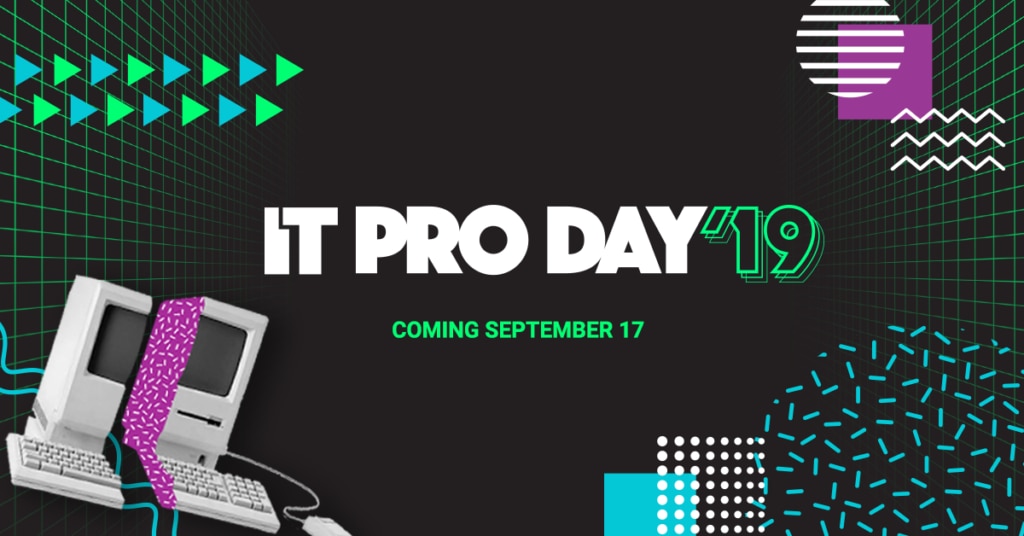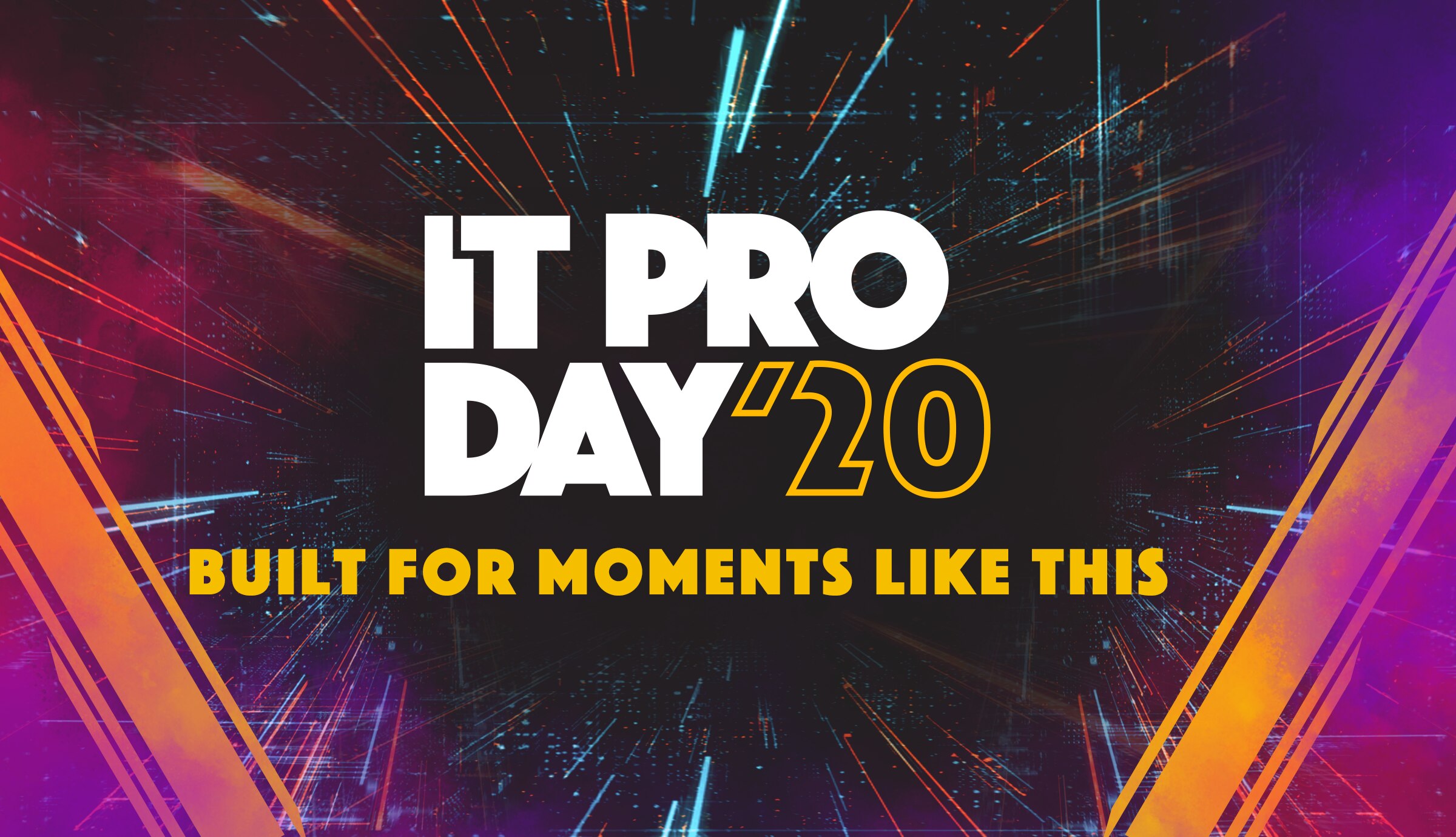 Image: https://2.bp.blogspot.com/-3B6KHm5x3JQ/WrrSvt1pIAI/AAAAAAAABvw/wQLhAE28Aak8AkI13Ylg0M8iJmZofgV5ACLcBGAs/s400/2-revealcodes.png
Anyone who knows HTML should feel right at home with the view on the bottom half of the screen.
Having taken the time to slog through WordPerfect (which was, in fact, the second word processor I learned), I not only gained skills and experience in using the software, but I unknowingly set myself up to have an easier time later.
And this experience was by no means unique—meaning I personally experienced many times when a piece of knowledge I’d struggled to acquire in one context turned out to be both relevant and incredibly useful in another; and my experience in this regard is not unique to IT professionals. We all have them. The experiences we have today all feed into the luck we have tomorrow.
So, on this IT Pro Day, I want to salute everyone in our industry who shows up, ready to do the hard work of figuring it out. May the yaks you must shave be small, and the times you find yourself saying “Wait, I already know this!” be many.
Image: https://2.bp.blogspot.com/-3B6KHm5x3JQ/WrrSvt1pIAI/AAAAAAAABvw/wQLhAE28Aak8AkI13Ylg0M8iJmZofgV5ACLcBGAs/s400/2-revealcodes.png
Anyone who knows HTML should feel right at home with the view on the bottom half of the screen.
Having taken the time to slog through WordPerfect (which was, in fact, the second word processor I learned), I not only gained skills and experience in using the software, but I unknowingly set myself up to have an easier time later.
And this experience was by no means unique—meaning I personally experienced many times when a piece of knowledge I’d struggled to acquire in one context turned out to be both relevant and incredibly useful in another; and my experience in this regard is not unique to IT professionals. We all have them. The experiences we have today all feed into the luck we have tomorrow.
So, on this IT Pro Day, I want to salute everyone in our industry who shows up, ready to do the hard work of figuring it out. May the yaks you must shave be small, and the times you find yourself saying “Wait, I already know this!” be many. IT Pro Day 2019—It Figures.
September 10, 2019
Applications

Recently, I was building out a demonstration and realized I didn’t have the setup I needed. After a little digging, I realized I wanted to show how to track changes to containers. This meant I needed some containers I could change, which meant installing Docker.
If this sounds like the usual yak shaving we IT professionals go through in our daily lives, you’d be right. And even if I told you I’d never spun up my own containers—or installed Docker, for that matter—you’d probably still say, “Yup, sounds like most days ending in ‘y.’”
Because working in IT means figuring it out.
I’d like to tell you Docker installed flawlessly; I was able to scan the documentation and a couple of online tutorials and get my containers running in a snap; I easily made changes to those containers and showcased the intuitive nature of my Docker monitoring demo.
I’d like to say all of those things, but if I did, you—my fellow IT pros—would know I was lying. Because figuring it out is sometimes kind of a slog. Figuring it out is more often a journey from a series of “Well that didn’t work” moments to “Oh, so this is how it’s done?” Or, as I like to tell my non-techie friends and relatives, “Working in IT is having long stretches of soul-crushing frustration, punctuated by brief moments of irrational euphoria, after which we return to the next stretch of soul-crushing frustration.”
That’s not to say we who make our career in IT don’t get lucky from time to time. But, as Coleman Cox once said, “I am a great believer in Luck. The harder I work, the more of it I seem to have.”
As we work through each day, solving problems, shaving yaks, and generally figuring it out, we amass to ourselves a range of experiences which—while they may be a bit of a slog at the time—increase not only our knowledge of how this thing (the one we’re dealing with right now) works, but also of how things work in general.
While it’s less relevant now, back in the day I used to talk about the number of word processors I knew—everything from WordStar to WordPerfect to Word—close to a dozen if you counted DOS and Windows versions separately. At the time, this was a big deal, and people asked how I could keep them straight. The answer was less about memory and more about familiarity born of experience. I likened it to learning card games.
“When you learn your first card game,” I’d point out, “it’s completely new. You have nothing to compare it to. So, you learn the rules and you play it. The second game is the hardest because it completely contradicts what you thought you knew about ‘card games’ (since you only knew one). But then you learn a third, and a fourth, and you start to get a sense of how card games in general work. There’s nothing intrinsically special about an ace or a jack or whatever, and card games can work in a variety of ways.”
Then I’d pull it back around to word processors: “After learning the third program, you realize there’s nothing about spell check or print or word-wrap unique to MultiMate or Ami Pro. And once you have a range of experience, you’re able to see how WordPerfect’s ‘Reveal Codes’ was totally unique.”
Which makes a nice story. But there’s more to it than that. As my fellow Head Geek™ Patrick Hubbard pointed out recently, those of us who mastered WordPerfect discovered learning HTML was pure simplicity, specifically because of the “reveal codes” functionality I mentioned earlier.
 Image: https://2.bp.blogspot.com/-3B6KHm5x3JQ/WrrSvt1pIAI/AAAAAAAABvw/wQLhAE28Aak8AkI13Ylg0M8iJmZofgV5ACLcBGAs/s400/2-revealcodes.png
Anyone who knows HTML should feel right at home with the view on the bottom half of the screen.
Having taken the time to slog through WordPerfect (which was, in fact, the second word processor I learned), I not only gained skills and experience in using the software, but I unknowingly set myself up to have an easier time later.
And this experience was by no means unique—meaning I personally experienced many times when a piece of knowledge I’d struggled to acquire in one context turned out to be both relevant and incredibly useful in another; and my experience in this regard is not unique to IT professionals. We all have them. The experiences we have today all feed into the luck we have tomorrow.
So, on this IT Pro Day, I want to salute everyone in our industry who shows up, ready to do the hard work of figuring it out. May the yaks you must shave be small, and the times you find yourself saying “Wait, I already know this!” be many.
Image: https://2.bp.blogspot.com/-3B6KHm5x3JQ/WrrSvt1pIAI/AAAAAAAABvw/wQLhAE28Aak8AkI13Ylg0M8iJmZofgV5ACLcBGAs/s400/2-revealcodes.png
Anyone who knows HTML should feel right at home with the view on the bottom half of the screen.
Having taken the time to slog through WordPerfect (which was, in fact, the second word processor I learned), I not only gained skills and experience in using the software, but I unknowingly set myself up to have an easier time later.
And this experience was by no means unique—meaning I personally experienced many times when a piece of knowledge I’d struggled to acquire in one context turned out to be both relevant and incredibly useful in another; and my experience in this regard is not unique to IT professionals. We all have them. The experiences we have today all feed into the luck we have tomorrow.
So, on this IT Pro Day, I want to salute everyone in our industry who shows up, ready to do the hard work of figuring it out. May the yaks you must shave be small, and the times you find yourself saying “Wait, I already know this!” be many.
 Image: https://2.bp.blogspot.com/-3B6KHm5x3JQ/WrrSvt1pIAI/AAAAAAAABvw/wQLhAE28Aak8AkI13Ylg0M8iJmZofgV5ACLcBGAs/s400/2-revealcodes.png
Anyone who knows HTML should feel right at home with the view on the bottom half of the screen.
Having taken the time to slog through WordPerfect (which was, in fact, the second word processor I learned), I not only gained skills and experience in using the software, but I unknowingly set myself up to have an easier time later.
And this experience was by no means unique—meaning I personally experienced many times when a piece of knowledge I’d struggled to acquire in one context turned out to be both relevant and incredibly useful in another; and my experience in this regard is not unique to IT professionals. We all have them. The experiences we have today all feed into the luck we have tomorrow.
So, on this IT Pro Day, I want to salute everyone in our industry who shows up, ready to do the hard work of figuring it out. May the yaks you must shave be small, and the times you find yourself saying “Wait, I already know this!” be many.
Image: https://2.bp.blogspot.com/-3B6KHm5x3JQ/WrrSvt1pIAI/AAAAAAAABvw/wQLhAE28Aak8AkI13Ylg0M8iJmZofgV5ACLcBGAs/s400/2-revealcodes.png
Anyone who knows HTML should feel right at home with the view on the bottom half of the screen.
Having taken the time to slog through WordPerfect (which was, in fact, the second word processor I learned), I not only gained skills and experience in using the software, but I unknowingly set myself up to have an easier time later.
And this experience was by no means unique—meaning I personally experienced many times when a piece of knowledge I’d struggled to acquire in one context turned out to be both relevant and incredibly useful in another; and my experience in this regard is not unique to IT professionals. We all have them. The experiences we have today all feed into the luck we have tomorrow.
So, on this IT Pro Day, I want to salute everyone in our industry who shows up, ready to do the hard work of figuring it out. May the yaks you must shave be small, and the times you find yourself saying “Wait, I already know this!” be many. 





